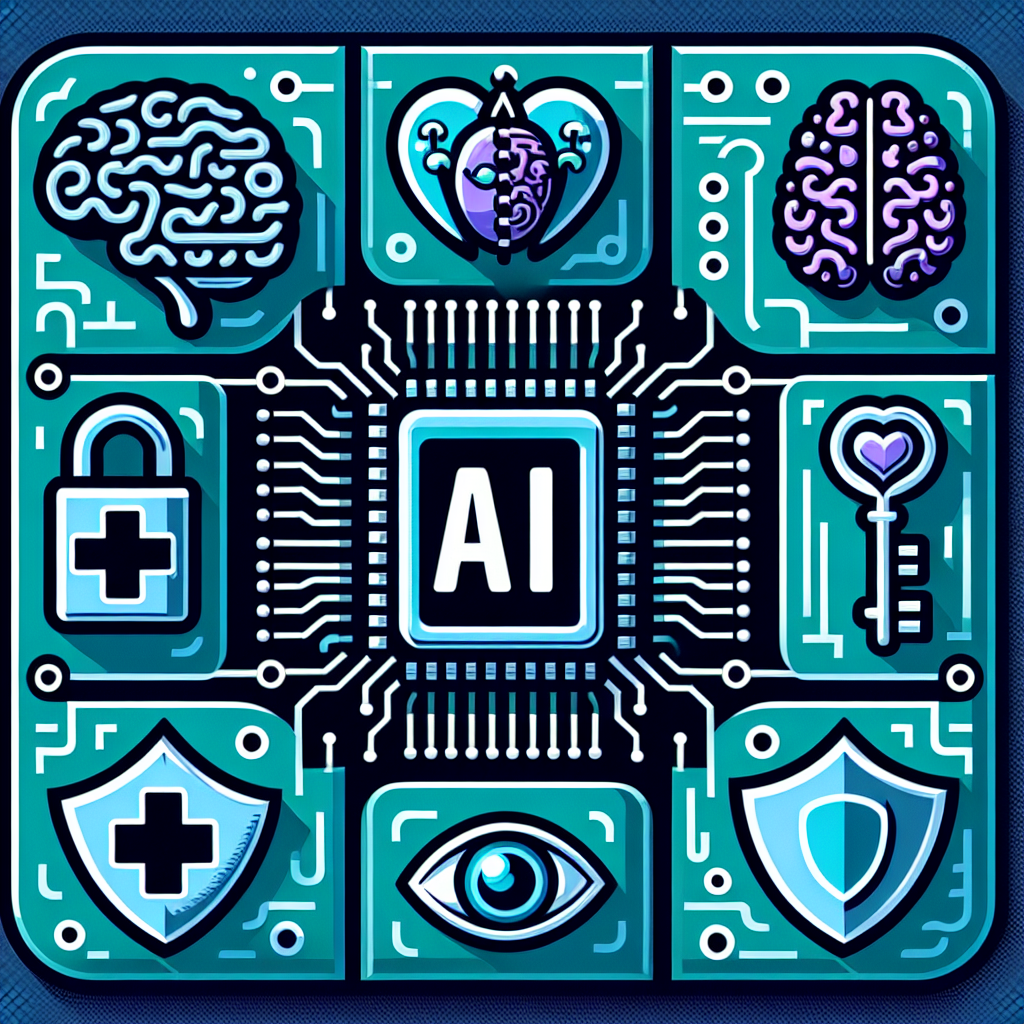In recent years, the integration of artificial intelligence (AI) technology in healthcare has become increasingly prevalent. From diagnosing diseases to personalized treatment plans, AI has revolutionized the way healthcare professionals deliver care to patients. However, with this increased use of AI comes concerns about health data privacy and security. In this article, we will explore how AI integration is improving health data privacy and security, as well as address some frequently asked questions about the topic.
AI Integration in Healthcare
AI technology has the potential to transform the healthcare industry by streamlining processes, improving patient outcomes, and reducing costs. One of the key areas where AI is making a significant impact is in health data analytics. AI algorithms can analyze large volumes of health data quickly and accurately, providing valuable insights for healthcare providers.
For example, AI can analyze medical images to detect abnormalities or predict patient outcomes. This can help healthcare professionals make more informed decisions about patient care, leading to better treatment outcomes. AI can also analyze electronic health records (EHRs) to identify trends and patterns in patient data, helping to improve care coordination and patient outcomes.
In addition to data analytics, AI technology is also being used to improve patient engagement and communication. Chatbots and virtual assistants can provide patients with information about their health conditions, answer questions, and even schedule appointments. This can help to improve patient satisfaction and reduce the burden on healthcare providers.
Improving Health Data Privacy and Security
While the integration of AI in healthcare offers many benefits, it also raises concerns about health data privacy and security. With the increasing amount of health data being generated and shared, it is essential to ensure that this data is protected from unauthorized access and misuse.
AI technology can actually help to improve health data privacy and security in several ways. One of the key ways AI is enhancing security is through the use of advanced encryption techniques. AI algorithms can encrypt health data to make it more secure and protect it from unauthorized access. This can help to prevent data breaches and ensure that patient information remains confidential.
AI can also help to detect and prevent security threats in real-time. By analyzing patterns in data access and usage, AI algorithms can identify potential security risks and take proactive measures to mitigate them. This can help healthcare organizations stay ahead of cyber threats and protect patient data from unauthorized access.
Furthermore, AI can help to improve data governance and compliance with regulations such as the Health Insurance Portability and Accountability Act (HIPAA). AI algorithms can automate the process of monitoring and enforcing data privacy policies, ensuring that patient data is handled in accordance with legal requirements. This can help healthcare organizations avoid costly fines and penalties for non-compliance.
Overall, AI integration in healthcare is helping to enhance health data privacy and security by improving encryption, detecting security threats, and ensuring regulatory compliance. By leveraging AI technology, healthcare organizations can better protect patient data and ensure that it remains confidential and secure.
FAQs
Q: How does AI technology improve health data privacy and security?
A: AI technology can improve health data privacy and security by encrypting data, detecting security threats, and ensuring regulatory compliance. AI algorithms can encrypt health data to make it more secure, analyze patterns in data access to identify security risks, and automate the enforcement of data privacy policies to comply with regulations.
Q: What are the benefits of AI integration in healthcare?
A: AI integration in healthcare offers many benefits, including improved patient outcomes, reduced costs, streamlined processes, and enhanced patient engagement. AI technology can analyze large volumes of health data quickly and accurately, providing valuable insights for healthcare providers. Chatbots and virtual assistants can also help to improve patient engagement and communication.
Q: How can healthcare organizations ensure the security of patient data when using AI technology?
A: Healthcare organizations can ensure the security of patient data when using AI technology by implementing advanced encryption techniques, monitoring data access and usage patterns, and enforcing data privacy policies. By leveraging AI technology, healthcare organizations can protect patient data from unauthorized access and ensure that it remains confidential and secure.
In conclusion, AI integration in healthcare is revolutionizing the way healthcare professionals deliver care to patients. By improving health data privacy and security, AI technology is helping to protect patient data from unauthorized access and misuse. With the right safeguards in place, healthcare organizations can leverage AI technology to enhance patient outcomes, reduce costs, and improve overall quality of care.

